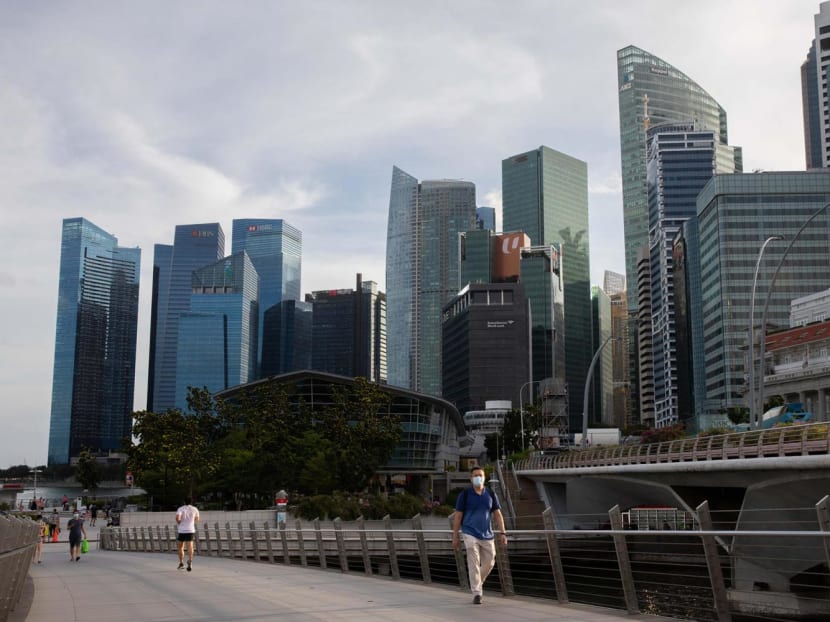Survey finds strong public expectations for Singapore CEOs to advocate, work with Government on social issues
SINGAPORE — With the world emerging from the crisis of a generation that is Covid-19, there is a strong desire globally — including in Singapore — for businesses and their leaders to be more active advocates and work with governments on social issues such as inequality, discrimination and climate change.
SINGAPORE — With the world emerging from the crisis of a generation that is Covid-19, there is a strong desire globally — including in Singapore — for businesses and their leaders to be more active advocates and work with governments on social issues such as inequality, discrimination and climate change.
These were among the findings of the 2023 Edelman Trust Barometer, an annual worldwide survey on trust and credibility.
Conducted in November 2022 by the Edelman Trust Institute, the 23rd edition of the survey involved 32,000 individuals in 28 countries including Singapore, where there were over 1,000 respondents.
The survey, which was released on Wednesday (March 15), had asked respondents what they expect chief executive officers (CEOs) to do on five societal issues of treatment of worker, climate change, discrimination, wealth gap and immigration.
In Singapore, 87 per cent of the respondents said they expect CEOs to "take a public stand" on the treatment of employees, while 80 per cent expect the same for climate change and 76 per cent discrimination. On wealth gap and immigration, the proportions expecting CEOs to speak out were 75 per cent and 70 per cent, respectively.
This mirrors the trend globally, with similar proportions expecting CEOs to speak out on each of the five issues.
On another measure, 79 per cent of respondents in Singapore believe that CEOs are "obligated to pull advertising money from platforms that spread misinformation", compared with a global average of 71 per cent.
About three quarters (76 per cent) said they believe CEOs are "obligated to defend facts and expose questionable science used to justify bad social policy", compared with a global average of 72 per cent.
Similarly, more than two-thirds of the Singapore respondents, or 65 per cent, felt that companies could strengthen a country's social fabric if they support politicians and media that build consensus and cooperation. Globally, those who feel this way make up 64 per cent.
Around the world, the Edelman survey found that people want more engagement from businesses, not less. Over half of the respondents (53 per cent) said that business was not doing enough to address climate change. Half said that businesses were not doing enough to address economic inequality and energy shortages.
In Singapore, the issue which most respondents felt businesses were not doing enough about was also climate change (52 per cent). Next came energy shortages (48 per cent) and economic inequality (45 per cent).
The survey also asked if businesses were overstepping on these social issues, but the responses were consistently low — with four to eight per cent of respondents in Singapore saying that business could be overstepping.
Respondents were also asked if businesses can avoid being political when they address contentious societal issues. In Singapore, a majority (55 per cent) agreed that businesses can do so.
This was not the case universally, with less than half of the respondents agreeing with the statement in 19 of 28 countries surveyed.
DESIRE FOR BUSINESSES TO WORK WITH GOVERNMENT
Overall, the survey indicated declining trust in governments around the world, with exceptions in China, Saudi Arabia, the United Arab Emirates, Singapore, India and Indonesia.
Correspondingly, the survey also found that people trusted governments less than businesses in the vast majority of countries surveyed.
Singapore was among the exceptions — 76 per cent of the respondents trusted the government, compared with 62 per cent for business.
Nevertheless, "government and business working in partnership" was deemed by respondents in Singapore as the approach most likely to result in constructive action on societal issues — 43 per cent picked this approach, higher than "government and business working independently" (18 per cent), "government only working alone" (18 per cent) and "business only working alone" (11 per cent). This is comparable to global findings.
BUILDING ECONOMIC OPTIMISM
The survey also found that economic optimism has "collapsed" around the world. In a question asking whether the respondent and his family will be better off in five years, only 40 per cent globally thought so.
In Singapore, 36 per cent felt that they and their families will be better off in five years — an all-time low and seven points lower than in the 2022 survey.
Developing countries tended to score higher on this measure than developed countries, with Japan scoring the worst at nine per cent.
To improve economic optimism, respondents in Singapore felt that business leaders can play a part by investing in fair compensation, local communities and paying taxes.
Specifically, over eight in 10 respondents said CEOs are obligated to pay a fair wage to employees, ensure that their home community is safe and thriving, pay fair corporate taxes and retrain employees. CNA
For more reports like this, visit cna.asia.










